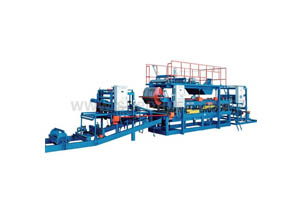Keywords: Fully Hydraulic Rope Core Drilling Rig, Rock Wool Production Line
Rock Wool And Mineral Fiber Panel Insulation-What Is The Difference?
For many owners who need passive fire protection, finding out exactly what is needed can be a complicated piece of information. For this type of project, a once-and-for-all approach cannot be used, because usually unique insurance and building regulation requirements determine what should be installed. Because the composition of each building is different, it is important to find a solution that provides the correct level of protection.
When you are researching the type of installation you need, the words "rock wool" and "mineral fiber" may appear frequently, but what do they mean? As a firewall solution, is there any difference between them? What is best for your project? Let us find out.
A stone wool insulation
The words "rock wool" and "mineral fiber" are often used interchangeably, but in essence, they share the same material make-up-stone wool-where melted natural rock is spun into long fiber bundles, captured, and condensed into the high-density mat. This provides a strong and long-lasting solution for effective fire and sound insulation, with benefits that don’t diminish over time.
The mineral fiber itself, as well as most of the supporting panels, are fully recyclable, providing the greatest degree of environmental sustainability and providing a solid foundation for the building to achieve a high BREEAM rating.
Why Rockwool?
As a manufacturer of thermal insulation materials, rock wool is a brand of mineral fiber thermal insulation materials. It can be used as a high-performance core material for fire-resistant sandwich panels.
When determining the type of panel required for your project, it may generally be considered that rock wool is the answer, but as a simple manufacturer of the mineral fiber family, you should also consider alternatives.
It is important to remember that different mineral fiber cores will have subtle differences in thermal and acoustic properties. Major panel manufacturers often use mineral fiber cores.
We provide rock wool sandwich panel machines for customers.
There are advantages of sandwich panel production line:
1. High degree of automation:
The whole PLC computer integrated control system adopts digital servo, frequency conversion vector, hydraulic control technology, humanized design, and convenient operation.
2. Advanced technology:
The decoiler of the sandwich panel machine of our company is designed with advanced technology, and there is no need to move the decoiler when converting the wall panel and roof panel production.
This can save production movement and adjustment time, and more importantly, can avoid deviations caused by inaccurate adjustment of the position of the uncoiler.
3. Excellent machine frame:
The 6 mm thick steel is processed by NC grinding to ensure that the frame has high hardness, no deformation, long life, and more stability for producing high-quality sandwich panels.
4. Scientific roll forming system:
The bearing steel is treated with various chromiums, which guarantees the permanent use of the rollers of the roll forming machine without replacement. The 11-meter long roll former with 13-14 pairs of stations provides more forming times for high-precision sheet metal profiles.
5. Considerable fit design:
The laminating machine is designed with more rollers to make the metal surface and the insulating core material have better adhesion.
6. Advanced band saw cutting machine:
Compared with the disc cutting machine, the new advanced band saw cutting machine cuts the plate faster, more beautifully, and has fewer rough cutting edges. It can better protect the workers' fingers while carrying the sandwich panel and during the construction process.

Next: What Is AGV